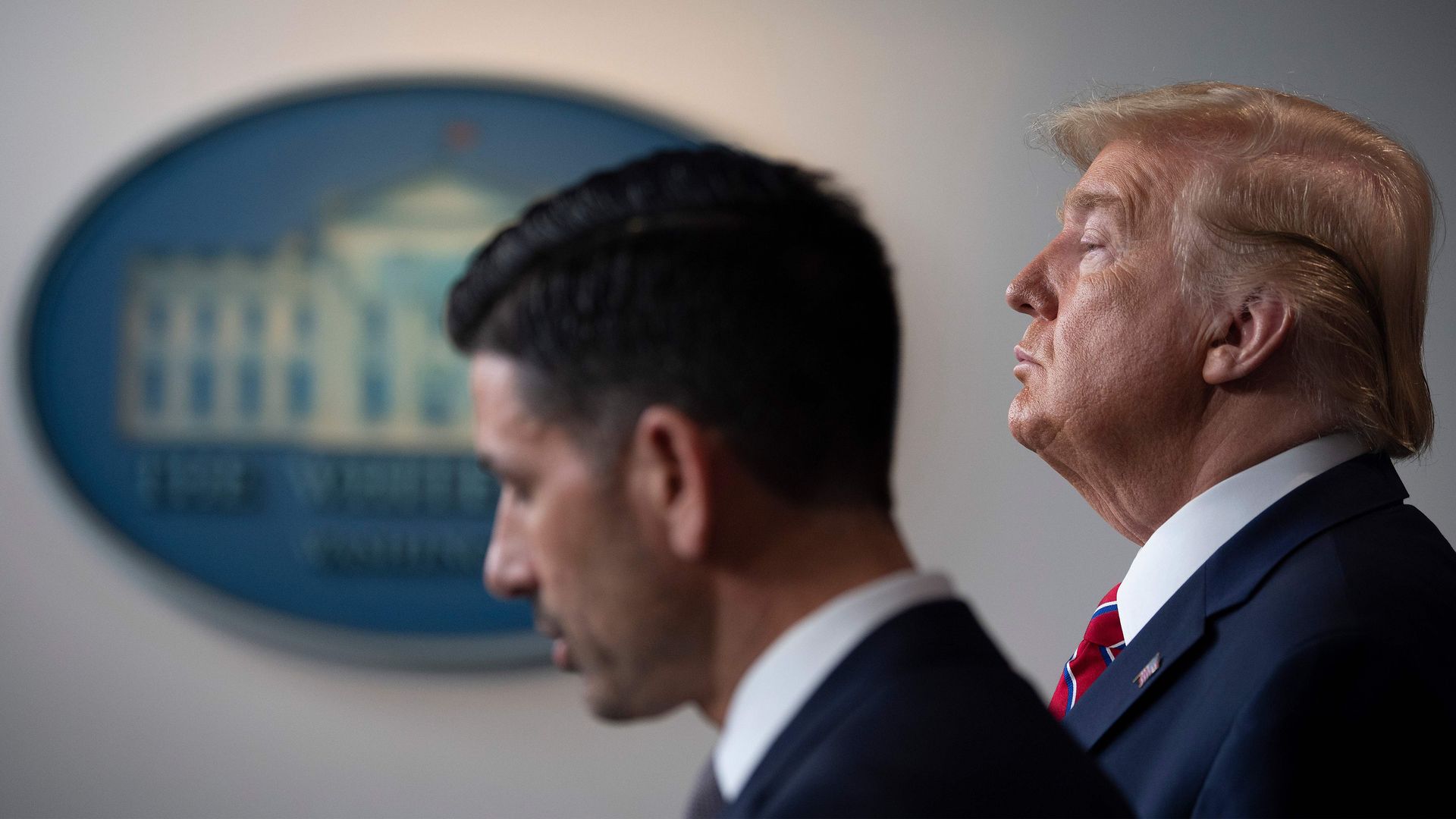Sep 22, 2020 - Politics & Policy
DHS resumes "public charge" wealth test for green card applicants
Add Axios as your preferred source to
see more of our stories on Google.

Presidnet Trump and Acting Homeland Security Secretary Chad Wolf. Photo: Jim Watson/AFP via Getty Images
